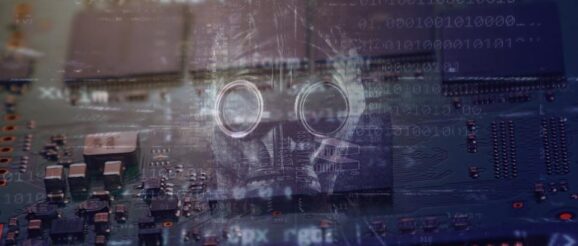Circular Economy and E-Waste Management: Sustain Innovation, Minimize Waste | E-SPIN Group

Circular Economy and E-Waste Management include what concept of a circular economy in the technology sector while what methods for manage electronic waste. The rapid evolution of technology has brought unprecedented convenience, but it has also given rise to a significant challenge: electronic waste, or e-waste. As our dependence on electronic devices grows, so does the need for innovative strategies that reconcile technological progress with environmental responsibility. What are the concept of a Circular Economy? What are the concept of a Circular Economy?
Circular Economy in the Technology Sector – The traditional linear economy model, characterized by a “take, make, dispose” approach, has proven unsustainable in the context of technology. Embracing a circular economy model, however, offers a transformative solution. In a circular economy, the lifecycle of products is extended through practices such as design for longevity, repair ability, and recycle ability. In the technology sector, this means manufacturing devices with modular components, enabling easy upgrades and repairs, and utilizing materials that can be recycled or repurposed. By transitioning from a linear to a circular model, the technology sector can reduce its environmental impact, minimize resource extraction, and foster a more sustainable approach to innovation. Design for Disassembly and Upgradability – Creating a circular economy in the technology sector begins with the design phase. Devices should be engineered with disassembly and upgradability in mind, allowing users to easily repair or replace individual components. This not only extends the lifespan of products but also reduces the overall demand for new resources. Designing for longevity promotes a culture of responsible consumption, where users can enjoy the latest technological advancements without contributing to the disposable culture that fuels e-waste. What are the effective methods for managing E-Waste Management? What are the effective methods for managing E-Waste Management?
Take-Back and Recycling Programs – To effectively manage electronic waste, technology companies need to implement comprehensive take-back and recycling programs. These initiatives encourage consumers to return their old devices for proper disposal and recycling at the end of their lifecycle. By establishing responsible collection systems, companies can recover valuable materials from discarded electronics and divert harmful substances from entering landfills. Additionally, these programs contribute to raising awareness among consumers about the environmental impact of e-waste and the importance of recycling. Promoting E-Waste Awareness – Education and awareness are key components of sustainable e-waste management. Governments, NGOs, and technology companies should collaborate to inform the public about the environmental consequences of improper e-waste disposal. Initiatives that educate consumers on the benefits of recycling, the presence of hazardous materials in electronic devices, and the availability of recycling options can contribute to a cultural shift towards responsible e-waste disposal. Extended Producer Responsibility (EPR) – Implementing Extended Producer Responsibility (EPR) policies is crucial for holding technology manufacturers accountable for the entire lifecycle of their products. EPR requires companies to take responsibility for the collection, recycling, and proper disposal of their products at the end of their life. By placing the onus on manufacturers to manage the environmental impact of their products, EPR incentivizes the adoption of sustainable practices and encourages the design of products with a circular economy in mind. Innovative E-Waste Processing Technologies – Advancements in e-waste processing technologies play a vital role in minimizing the environmental impact of discarded electronics. Innovations such as automated sorting, safe extraction of valuable materials, and environmentally friendly disposal methods contribute to more sustainable e-waste management. By investing in and adopting these technologies, the industry can streamline the recycling process, recover valuable resources, and reduce the ecological footprint of e-waste disposal. In conclusion, the integration of circular economy principles in the technology sector and effective e-waste management strategies are essential for mitigating the environmental challenges posed by electronic waste. Designing products for longevity, implementing take-back programs, promoting awareness, and embracing innovative processing technologies are integral components of a sustainable approach. E-SPIN Group is a leading provider of enterprise ICT solutions and value-added services. We specialize in providing customized end-to-end solutions that meet the specific needs and requirements of our clients. Our services include consultancy, supply, integration, project management, training, and maintenance, all of which are designed to help organizations achieve their regulatory compliance goals and improve operational efficiency and effectiveness. Whether you need a customized solution for your entire organization or a point solution for a specific area of your business, E-SPIN Group has the expertise and experience to help. Contact us today to learn more about how we can assist with your organization’s needs and requirements.
